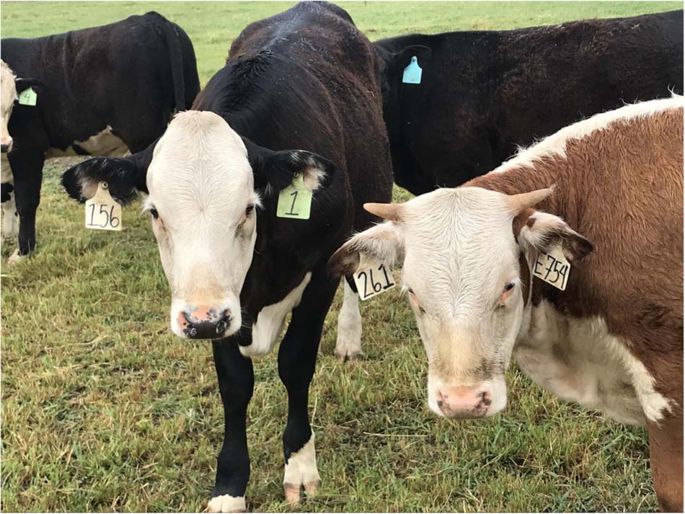npj Science of Food ( IF 6.3 ) Pub Date : 2019-03-20 , DOI: 10.1038/s41538-019-0035-y Alison L. Van Eenennaam , Kevin D. Wells , James D. Murray

|
Dietary DNA is generally regarded as safe to consume, and is a routine ingredient of food obtained from any living organism. Millions of naturally-occurring DNA variations are observed when comparing the genomic sequence of any two healthy individuals of a given species. Breeders routinely select desired traits resulting from this DNA variation to develop new cultivars and varieties of food plants and animals. Regulatory agencies do not evaluate these new varieties prior to commercial release. Gene editing tools now allow plant and animal breeders to precisely introduce useful genetic variation into agricultural breeding programs. The U.S. Department of Agriculture (USDA) announced that it has no plans to place additional regulations on gene-edited plants that could otherwise have been developed through traditional breeding prior to commercialization. However, the U.S. Food and Drug Administration (FDA) has proposed mandatory premarket new animal drug regulatory evaluation for all food animals whose genomes have been intentionally altered using modern molecular technologies including gene editing technologies. This runs counter to U.S. biotechnology policy that regulatory oversight should be triggered by unreasonable risk, and not by the fact that an organism has been modified by a particular process or technique. Breeder intention is not associated with product risk. Harmonizing the regulations associated with gene editing in food species is imperative to allow both plant and animal breeders access to gene editing tools to introduce useful sustainability traits like disease resistance, climate adaptability, and food quality attributes into U.S. agricultural breeding programs.
中文翻译:

美国拟议的基因编辑食用动物法规不适合该目的
饮食中的DNA通常被认为可以安全食用,并且是从任何活生物体中获取食物的常规成分。在比较给定物种的任何两个健康个体的基因组序列时,观察到数百万种自然发生的DNA变异。育种者通常会从这种DNA变异中选择所需的性状,以开发出新的食用植物和动物品种和品种。监管机构不会在商业发行之前评估这些新品种。现在,基因编辑工具允许动植物育种者将有用的遗传变异精确地引入农业育种程序中。美国 农业部(USDA)宣布,它没有计划对基因编辑植物制定其他法规,否则这些基因本来可以在商业化之前通过传统育种开发出来的。但是,美国食品药品监督管理局(FDA)提出了对所有食用动物的强制性售前新动物药物监管评估,这些食用动物的基因组已使用现代分子技术(包括基因编辑技术)被有意改变。这与美国生物技术政策背道而驰,该政策监管监督应由不合理的风险触发,而不是由特定过程或技术对有机体进行改造的事实来触发。育种者的意愿与产品风险无关。











































 京公网安备 11010802027423号
京公网安备 11010802027423号